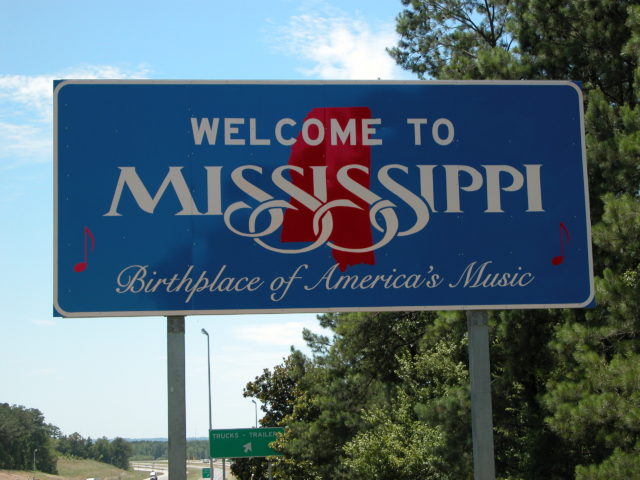
While the media’s attention has been focused on the Trump circus, an impressive number of progressives have been winning local races around the country. A few reporters have noticed this, such as John Nichols of The Nation, Alex Roarty of McClatchy newspapers and Alan Greenblatt of Governing (the nation’s leading magazine for state and local leaders).
The most intriguing victor was Chokwe Antar Lumumba, a 34-year-old black human rights lawyer, who became the mayor of Jackson, Mississippi, with 93 percent of the vote in a June election, which had one of the highest turnouts in years. In May, he won the Democratic primary by 55 percent against the centrist incumbent mayor and several veteran politicians. He advocated economic self-determination via cooperative businesses and participatory, neighborhood by neighborhood democracy with “people’s assemblies.” He promoted a civilian law enforcement review board and a reform of public school education pedagogy “to benefit our children’s specific learning needs.”
Lumumba promised to make Jackson “the most progressive city in the country.” Jackson is a city that is 80 percent black with 31 percent of its population living in poverty. It is the capital of a state where Republicans have near total power.
Lumumba’s father, Chokwe Lumumba, became Jackson’s mayor in 2013 but died at the age of 66 just eight months after taking office. The senior Lumumba was also a human rights activist and lawyer who had previously worked with the Republic of New Afrika, a black nationalist organization that aimed to create an independent black republic in the Deep South. He was born Edwin Finley Taliaferro in Detroit. But he would later discard his “slave name” and take the name Chokwe Lumumba, honoring a Central African tribe that resisted the slave trade and the Congolese prime minister Patrice Lumumba.
There were fears that he would be too far left to build coalitions, but he demonstrated that he could be both pragmatic and radical. He soon won praise from his election opponents and the business community.
He passed a budget that raised spending by 43 percent to deal with the city’s serious infrastructure needs (the city has horrible roads, an overflowing sewage system and a water supply that frequently requires boil notices).
Now his son is mayor. He has the same name as his father except for his middle name of Antar (the name of a historic poet and warrior who died while saving a woman from drowning). Shortly after being elected, he was a featured speaker in Chicago at the People’s Summit, a gathering of Bernie Sanders-aligned groups pushing for a “political revolution.”
The younger Lumumba assembled a diverse local coalition of supporters which included veterans of civil rights struggles, the city workers’ union and supporters of Bernie Sanders’ presidential bid. He also received help from national groups such as the black nationalist Malcolm X Grassroots Movement, Democracy for America (which came out of Howard Dean’s 2004 presidential campaign) and the Working Families Party (a labor-backed group which aims to create a viable third party while also cross-endorsing progressive Democrats).
Shortly after the elder Lumumba died, Cooperation Jackson was formed. According to its website, its mission is “to advance the development of economic democracy in Jackson, Mississippi, by building a solidarity economy anchored by a network of cooperatives and other types of worker-owned and democratically self-managed enterprises.”
At the moment, Cooperation Jackson operates Freedom Farms, an urban-farming collaborative, and the Chokwe Lumumba Center for Economic Democracy and Development, a community center and small-businesses incubator. The organization is fighting gentrification by buying up vacant lots to create a “community land trust,” which is a nonprofit that manages land to ensure that it remains affordable as prices of commercially owned land fluctuate. It now owns 25 plots and plans to purchase 50 more in order to create a village of sustainable housing for low-income residents. The group is also fund-raising to build a small-scale manufacturing facility.
They are inspired by Mondragon, a corporation and federation of worker cooperatives based in the Basque region of Spain. It was founded in 1956 by a Catholic priest when Spain was ruled by fascist dictator Francisco Franco. It runs 261 businesses in finance, industry, retail and knowledge.
Kali Akuno, a co-founder of Cooperation Jackson, hopes his city can create a new economy of co-ops, which would be independent of the dominant economy. Co-op farms would sell to co-op restaurants, and co-op small businesses would take out loans from co-op banks.
In order for that to happen, Akuno argues, co-ops have to be politicized with “ordinary” people wanting to build a new society. Is this part of the answer to Trump and Republican political dominance? We have to not only resist the far right but also build an alternative.
This opinion column does not necessarily reflect the views of Boulder Weekly.














